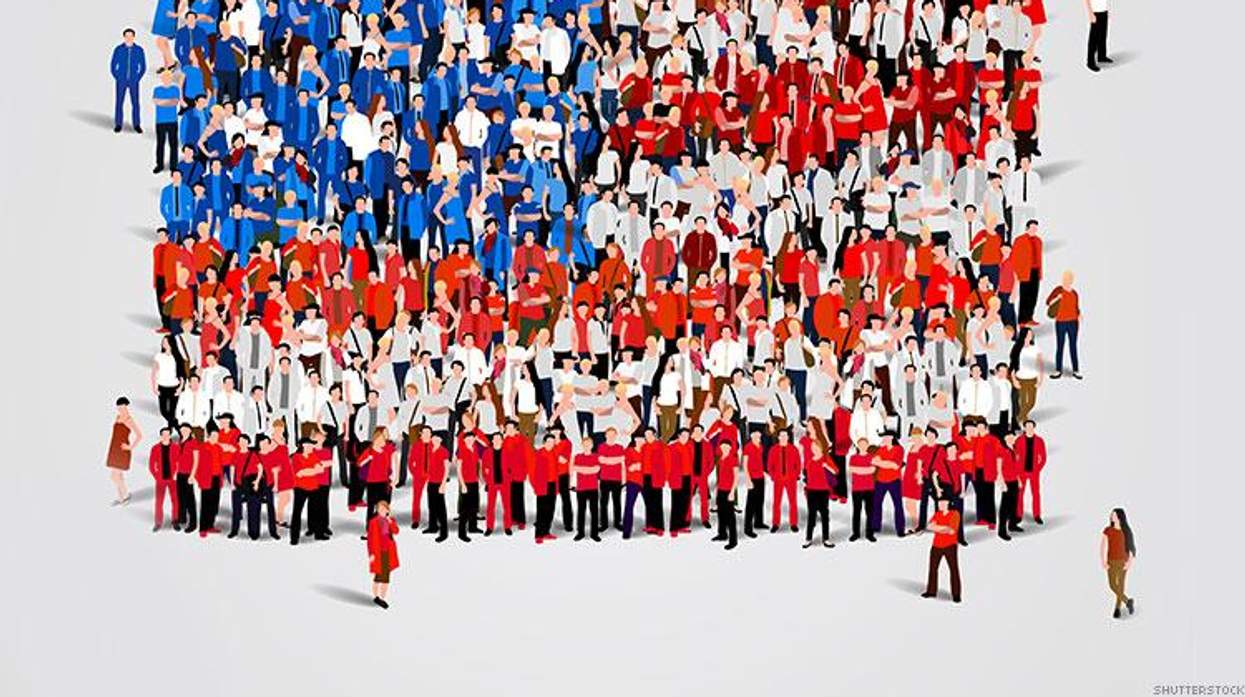Every time a party loses an election, bad punditry gets its time to shine. In 2008 and 2012, the Republicans blamed their losses on not courting Latinos enough. In 2004, Democrats blamed the war in Iraq; in 2000 they blamed Florida, which, to be fair, is always a pretty solid choice. Let's face it, Florida is the back of the American couch where all the weird stuff accumulates.
This year, instead of blaming the electoral college, the media, or hubris, more than a few Democratic talking heads have decided to blame identity politics on their loss. Even St. Bernard Sanders, the anointed savior and prophet of the Democratic future, decried identity politics. That's odd considering that the man makes a big deal about his work in the civil rights movement -- which was identity politics.
Identity politics is an easy whipping boy for pundits because apparently no one really knows what it is or what it does. Identity politics really should be easy to grasp, but then if this stuff was easy you wouldn't have pundits on television getting paid insane amounts of money to explain it all to you incorrectly. OK, that's not fair; they get paid to shout at each other about it.
Let me explain identity politics to you guys really simply. Ready? Here goes: It's politics you and people like you care about because it affects you. In other words, it's just politics. See? Wasn't that easy? I'm sure there are some frothing at the mouth right now, screaming about how that's not what identity politics is, how it works, or what it's about. Fine, so explain how a group of people with a common identity -- let's say coal miners -- getting together to pressure society through social and political movements over a shared interest is not identity politics. If you say that's because coal miner is not an identity, then I think we need to schedule you a field trip to West Virginia.
Identity politics is just a phrase to make individual groups feel different and special when they're just another group. You see, identity politics is politics with a bow on its head. That's why it's so divisive and frustrating; it can create extra divisions within our society where we end up talking past each other and hunkering down in our own little groups. So when a party blows an election or it's not making the progress it wants, people can blame a certain identity group that was being a little extra vocal this time around. This is crappy, because usually those special interest groups are simply doing what they should be -- being politically active.
Yes, in society there are groups of people opposed to each other, such as pro-life and pro-choice groups, and those will always work against each other, but whoever has the more politically active people get the most attention. Like with transgender people, the group that some have blamed for the loss of the election this year, the reason it was such a huge issue was that transgender people were active. They were voting, they were speaking out, and they were being proactive about their interests, because their interests were being brought to the fore. They, of course, overwhelmingly sided with the Democrats because that's the group that has been more amenable to them.
You see, transgender people, like other people, have, wait for it, multiple identities! Crazy idea, follow me on this one. You see, while I'm transgender, I'm also a veteran, a Southerner, a writer (sort of), white, a video game player, pro-choice, bisexual, pro-police reform, a Chevy owner, right-handed, and a big supporter of the social safety net. I have all these various things I identity with that are not the sole defining aspect of my life. Which, by the way, if there are only one or two things in your life that identify who you are, then you really need to diversify your interests because you're probably a really boring person to be around. But that's the thing about politics -- you should have more than one interest you care about.
That's why people are so bad at identity politics; they don't get that all it comes down to one group of people with a shared identity expressing the same thing you likely already believe in, just in a different way because it's their way of expressing it. Trans people just want to be able to live their authentic selves free of violence and discrimination (and, yes, use the bathroom without drama); those desires aren't exceptional, they're human.
I do love it whenever someone tries to critique me by saying, "You'll never understand what it's like to be" whatever group of people I'm not a part of and not heaping slavish praise upon. No, I'll never understand what it's like to be that group of people because I'm not them; I'm part of a different group and will always be different. What I can do, though, is figure out where our two groups meet. Crazy idea, right? Follow me on this one. OK, for example, I'm not Native American, I'll never be Native American, but I support Native Americans' right to control and protect their lands, preserve their culture, raise their standards of living (seriously, they have horrible poverty issues), and have more of a voice. Why do I support these things? I want to protect the environment, I love cultural diversity, I think everyone deserves to economically thrive, and I love participatory democracy. Even though I'm not a Native American and don't have that identity, I believe in certain things that benefit an identity that isn't mine.
That's how identity politics works, or at least should work. It's not about your group being more special, even though to you it is. Identity politics doesn't hope to achieve rights at the expense of others; there's no finite amount of justice in the world.
It works like children; a certain group's identity politics are only precious to them. It's about how your identity, your group, overlaps and shares an interest with another; it's about finding that common ground and shared humanity that allows us to commute on the same highways every day without killing each other. Identity politics is merely a variation based on a special factor like race, sexuality, religion, class, or favorite Looney Tunes character, where all the members are trying to improve their lot in life. The minute you decide to blame one group or another for the shared movement stumbling or failing, it's not that particular group of people's problem, it's yours.
AMANDA KERRI is a writer and comedian based in Oklahoma City. Follow her on Twitter @EternalKerri.




































































Charlie Kirk DID say stoning gay people was the 'perfect law' — and these other heinous quotes